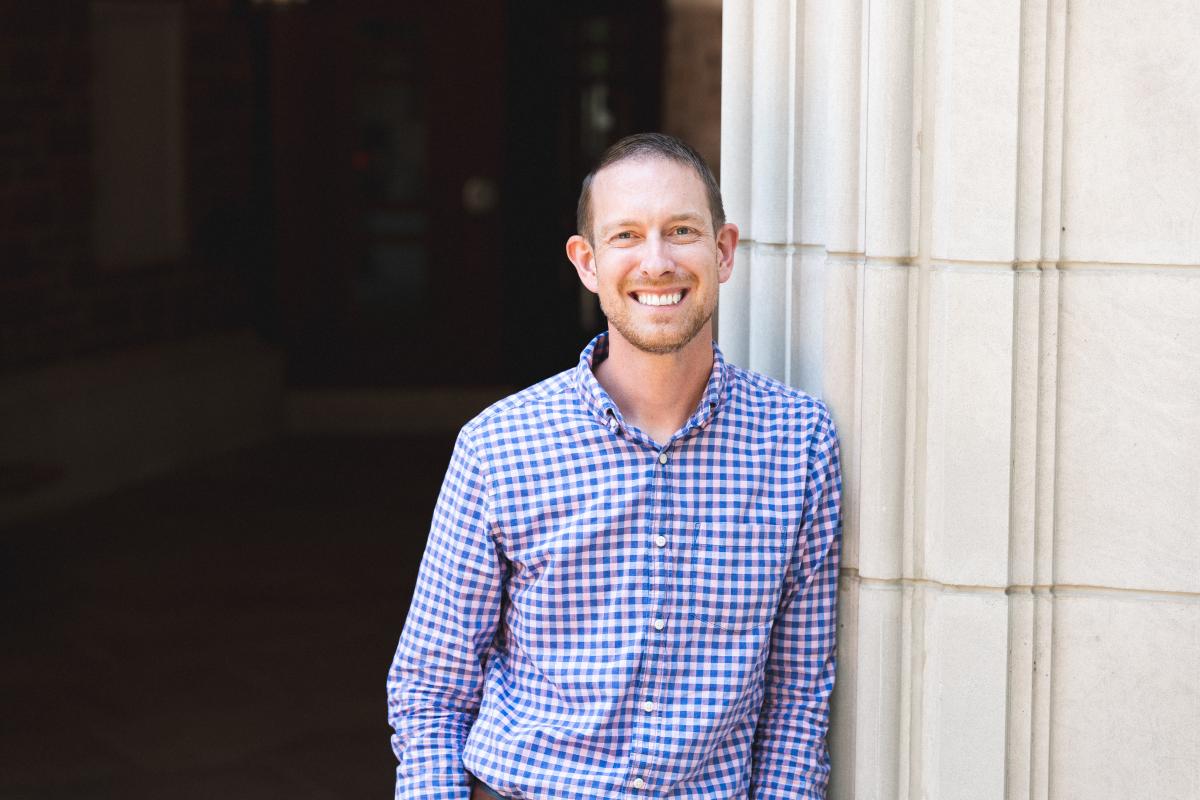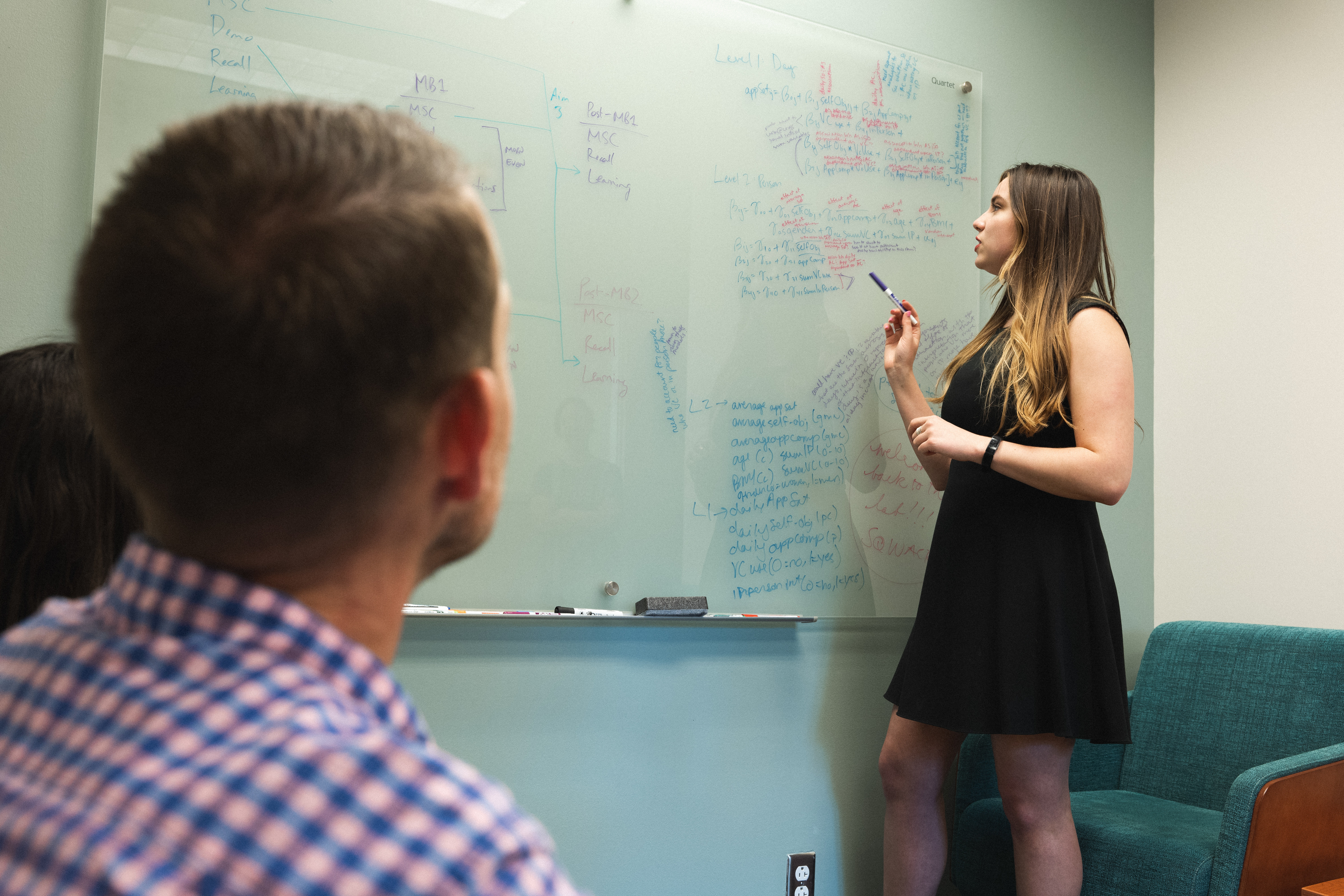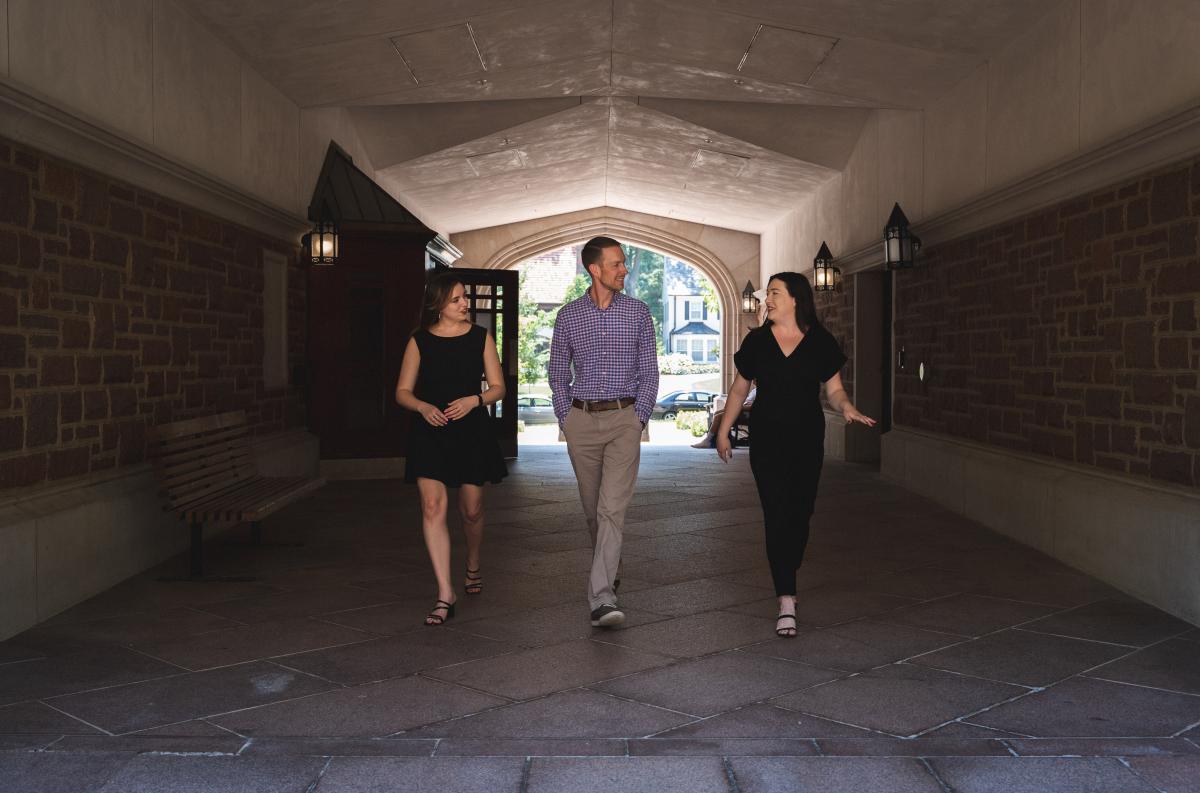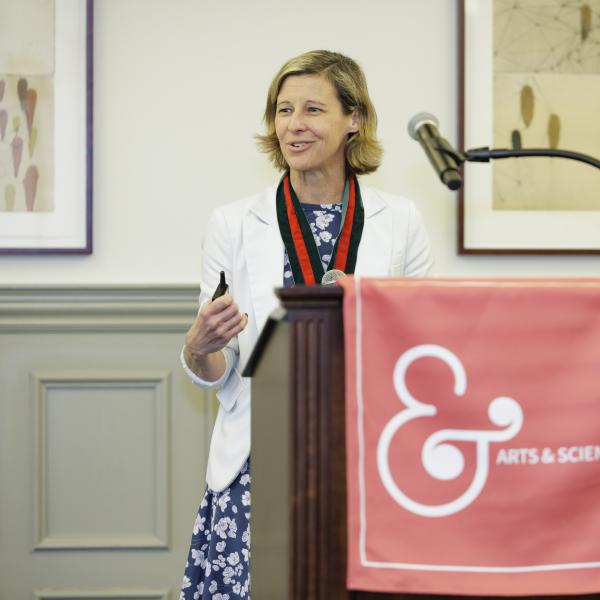Patrick Hill investigates the effects of living purposefully on health, wealth, and wellness – and how to maintain one’s purpose through life’s transitions.
Whether you spend your weekdays as an employee, retiree, caretaker, student, or something else entirely, a typical morning likely includes some familiar components. Wake up, perhaps have a cup of coffee, and make a plan for the day. What do you intend to accomplish? What tasks, professional and personal, need to be checked off your list?

Patrick Hill, associate professor of psychological and brain sciences in Arts & Sciences, has spent the last decade studying the often-unnoticed background noise behind the sounds of coffee brewing and to-do list scrawling. Hill and his collaborators examine the big picture of why people set goals and seek to accomplish them – in other words, what it means to live with purpose.
In the Purpose, Aging, Transitions, and Health (PATH) lab, Hill examines a wide range of questions relating to purpose. He and his students want to know how people find their purpose, how purpose relates to health and wellness, and, most recently, how life transitions like retirement affect a person’s ability to live purposefully. The work has real-world implications for just about anyone, at just about any phase of life.
The multifaceted benefits of purpose
Hill describes purpose as a framework that helps individuals identify what is personally important. For some, the prospect of professional advancement conveys a sense of purpose. For others, it’s a broad desire to help those in need. In any case, purpose imparts direction and structure to both daily life and long-term plans.
Across numerous populations, age ranges, and geographic locations, an overarching theme remains: "Having a sense of purpose seems to be valuable for health and well-being."
Through his work in the PATH lab and partnerships with researchers across the world, Hill has found that purpose correlates with life outcomes far beyond expected areas like career success. People with a greater sense of purpose are healthier overall. They tend to have more satisfaction in their romantic relationships and more positive attitudes toward diversity. They even get better sleep, according to a forthcoming paper from the lab that connects purpose with more granular health benefits.
Purpose under the microscope
To make these kinds of discoveries, Hill and colleagues have had to find ways to bring scientific methodology to something that is by nature highly personal and often nebulous. “I started out thinking, is this even something we can study?” Hill recalled. “It’s such a big, crazy thing that differs so much from one person to the next.”
As indicated by the PATH lab’s numerous publications and ongoing projects, the researchers have found successful strategies for approaching the subject. “Part of the answer is you have to do it several different ways,” Hill explained. “There’s no one method or methodology that’s going to lead to being able to capture all that there is about purpose.”
Questionnaires often prove a helpful tool for studies in the PATH lab. Such surveys ask respondents to rate levels of agreement to statements like: I have a sense of direction in my life; or, some people may wander aimlessly, but I’m not one of those people. Importantly, these surveys allow respondents to express having a sense of purpose even when they aren’t able to define exact life goals.
Associating purpose with health outcomes often requires large datasets. In addition to conducting his own surveys, Hill taps into data collected by major collaboratives around the world. The quest is ever-expanding.
“A lot of my work recently has been trying to go outside of the samples that we’ve been using in the past,” Hill shared. “We have a couple papers on sense of purpose among an ethnically diverse sample in Hawaii. It’s always an interesting step in these directions because you first have to figure out what purpose means in different contexts.”
Across numerous populations, age ranges, and geographic locations, an overarching theme remains. “It’s still the case that having a sense of purpose seems to be valuable for health and well-being,” Hill said.

The case of retirement
The benefits of purpose are especially pronounced for older adults. Those who report having higher levels of purpose tend to have fewer health problems, including depressive symptoms and cognitive decline. However, adults tend to report declining levels of purpose over time.
Because of the opportunities to impact so many lives, Hill identifies his studies on aging and retirement as among the most urgent in his lab. “It’s something I think about as my own parents are retiring,” Hill shared. “It’s really important to me to figure out who wants a purpose in retirement and what we can do to help those individuals.”
One study on this topic, published last year in Psychology and Aging, examined how participation in leisure activities, from gardening to games, relates to a sense of purpose. Using a sample of more than 7,000 participants who took part in earlier longitudinal surveys, Hill and coauthor Nathan Lewis found substantial results.
Overall, those who participated more frequently in leisure activities reported a higher sense of purpose. Those who engaged in cognitive activities daily – tasks like puzzles or word games – were less likely to experience the typical decline in purposefulness across time. Also, when respondents reported having recently participated in more physical activities than usual, they reported higher levels of purposefulness.
The results point to potential strategies for retirement communities to help residents maintain a sense of purpose and, by extension, possibly a better quality of life overall. As Hill and Lewis note within the study: “These findings underscore the potential for leisure activity interventions to help older adults compensate for loss of work-related roles and maintain purposefulness into retirement.”
The path forward

Back when Hill first began studying purpose as a graduate student at Notre Dame, he and a research partner joked that “this can’t be as good as it seems.” A decade later, he remains amazed by the many ways purpose intertwines with so many facets of life.
“I think that’s been the a-ha moment for me,” he said. “There’s only a couple times in which we’ve found that having a sense of purpose isn’t positively related to something.”
The topic has proved fascinating for students at both the undergraduate and graduate level, and their interests shape much of the lab’s work. Hill makes a habit of involving his students in ongoing studies and encourages both undergraduate and graduate students to pursue their own research questions.
In the PATH lab, doctoral student Gabrielle Pfund, MA ’21, focuses her work in part on how universities can help students develop a sense of purpose. Fellow lab member Megan Wilson, MA ’21, is interested in identifying the factors that lead an individual to engage in activism as their purpose in life. Rachel Best, AB ’20, completed a senior thesis last year that focused on how to assist retirees in maintaining a sense of purpose during the retirement transition. As with many alumni of his lab, Hill has continued to collaborate on projects with Best after she started graduate school.
“I think that’s one of the great things about running a lab here,” Hill shared. “Everybody can attach to the concept in a new way that gets you excited and energized to do something in a new direction. If you had asked me a decade ago, I would not have expected to still be talking about purpose – but there’s so much left to learn.”
Learn more about purpose and the PATH lab Oct. 20 in a virtual event! See the event details.




